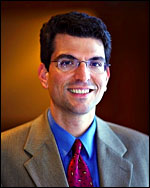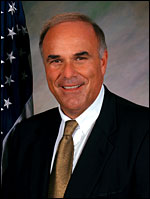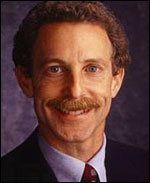
So what exactly does change look like? Barack Obama has ambitious energy and environmental plans. If he wins on Nov. 4, who will he recruit to carry them out? Will he rely more heavily on Washington newcomers or on Clinton administration veterans who know their way around the White House?
Obama’s choice for a transition team leader — John Podesta, former Clinton chief of staff — suggests he’s willing to look back to the Clinton years for top staff. But Obama has also surrounded himself with bright and accomplished advisers (note our interviews with energy policy chief Jason Grumet and director Heather Zichal) who are newer to the national scene. Will he fill Cabinet-level environmental jobs with fresh faces or stick to a more traditional path with ex-governors and Washington lawmakers? We asked campaign advisors, nonprofit conservation advocates, think-tank types, lobbyists, academics, and friendly looking folks behind us in line at the co-op. It’s a cardinal sin in Washington to openly speculate on these matters before an election, so we promised confidentiality to many sources.
(Also check out John McCain’s possible cabinet picks.)
Energy | EPA | Agriculture | Interior | Climate Czar
Managing the nation’s energy policy and nuclear safety is one of the most glamourless, thankless Cabinet-level positions, according to former Department of Energy officials. The secretary oversees the nation’s nuclear weapons stockpile and nuclear waste disposal and a lot of private contracts. “You get a whole lot of responsibility for regulating, but you don’t get a lot of credit for achieving good things in the political process,” said Walter Rosenbaum, a former DOE consultant and energy policy scholar. Still, the position could take on more prominence in the next administration, given the amount of attention the candidates devoted to energy during the campaign.

Jason Grumet.
Jason Grumet
The Obama campaign’s lead energy and environment advisor first started working with the senator when he arrived in Washington in 2005. In helping Obama develop his energy platform, Jason Grumet drew from his experience as head of the National Commission on Energy Policy and the Bipartisan Policy Center. Grumet’s think-tank work has focused on building consensus among diverse interests, though the NCEP’s 2004 energy report annoyed many environmentalists by calling for pollution permits to be given free of charge to polluters and by supporting a “safety valve” that would limit the price of pollution credits. This job has traditionally gone to seasoned governors and lawmakers, but Obama has shown affinity for policy wonks like Grumet. (Read a Grist interview with Grumet.)

Ed Rendell.
Ed Rendell
With energy issues in the national spotlight, a veteran politician with deal-brokering experience could be at a premium. The Pennsylvania governor has worked to curb mercury emissions from the state’s coal-fired power plants, adopted California’s tough clean-car regulations, and pushed tax credits and other measures to attract renewable energy companies. Ed Rendell was one of Hillary Clinton’s key supporters during the Democratic primary, but has since campaigned for Obama. If he delivers his swing state next month, this spot (or another in Obama’s Cabinet) could be his for the taking.

Dan Reicher.
Dan Reicher
Dan Reicher [PDF] has recently talked up geothermal energy as the potential “killer app” of the energy world. He gets his techie metaphors at Google.org, the philanthropic arm of the search engine giant, where he is director of climate change and energy initiatives. Before that he worked as an assistant energy secretary under President Clinton, a lawyer for the Natural Resources Defense Council, and a sales executive at a renewable energy firm. Reicher’s knowledge of venture capital and commercializing green technology make him an appealing candidate to Bill Becker, executive director of the Presidential Climate Action Project. “We’re facing one of the most promising worldwide market opportunities that we’ve ever had, and we need this kind savvy business experience,” Becker said. (Watch a Grist interview with Reicher.)



